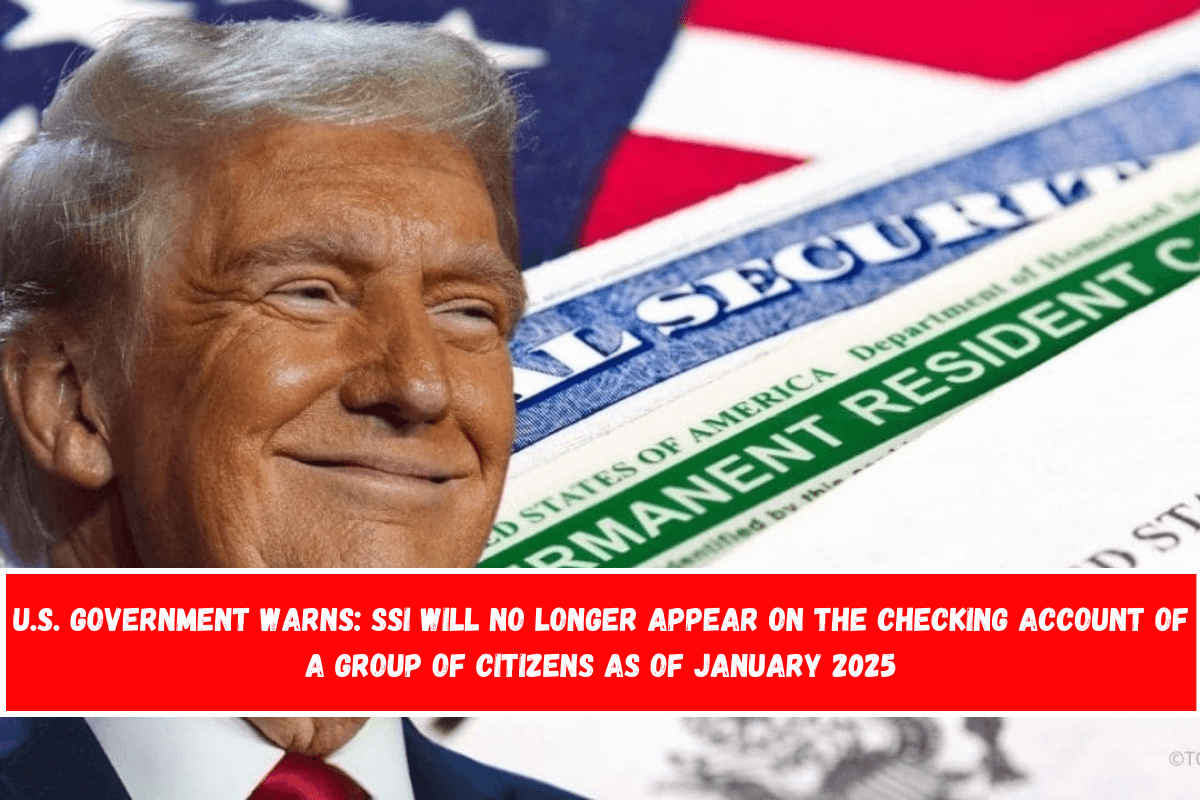Some US individuals will no longer receive Supplemental Security Income (SSI) payments in their bank accounts starting in January 2025.
While this choice may cause anxiety among particular categories of recipients, it is based on government-established criteria rather than arbitrary decisions. Understanding the reasons for this action is critical for individuals who rely on it to meet their basic needs.
The Supplemental Security Income program is a critical resource for the elderly, disabled, and low-income individuals. However, not all beneficiaries can keep this benefit indefinitely.
Payment suspension can occur for a variety of reasons, including changes in personal circumstances or noncompliance with program restrictions. As a result, it is critical to understand the standards and be aware of the potential causes that could prevent this assistance.
Furthermore, at the start of next year, the maximum SSI payments will be adjusted, which may benefit people who meet all of the requirements. Understanding these changes and preparing properly can make a difference for those who rely on financial assistance.
Why can SSI payments stop?
A variety of events might contribute to the suspension or termination of SSI. Knowing about them might help recipients avoid being caught off guard by a stoppage in their income.
- Income above the allowable limit. This can occur due to an increase in wages or additional income that has not been reported.
- Changes in medical condition. If it is determined that the disability no longer meets the established criteria, payments may stop.
- Lack of information at periodic reviews. Beneficiaries must provide all documentation required by the Social Security Administration.
- Out-of-country residency. Living outside the United States for more than 30 consecutive days, other than in exceptional cases, may also be reason for suspension.
- Misuse of payments. If the money is not used for basic household needs, it may be considered a misuse of funds.
In many circumstances, it is possible to appeal the suspension judgment or address the underlying causes of the suspension. Contacting the Social Security Administration and following their guidelines can make it easier to fix these issues.

Increases in Maximum SSI Payments by 2025
The annual cost-of-living adjustment (COLA) will increase the maximum payment levels for SSI claimants beginning in 2025. This adjustment, designed to reduce the effects of inflation, will allow payments to be higher than the prior year.
- Individuals: may get up to $967 per month.
- Eligible couples: the maximum amount will be US$1,450 per month.
These adjustments, resulting from a 2.5% rise in the COLA, provide significant economic relief to those who meet the conditions. However, it is important to remember that they will only apply to active beneficiaries in 2025.
Many households can improve their financial management by arranging their budgets around these increased amounts. As always, following program guidelines is essential to getting the most of this financial assistance.
Also see:- SNAP payments before Christmas: These states will send checks to EBT cards on time











Leave a Reply